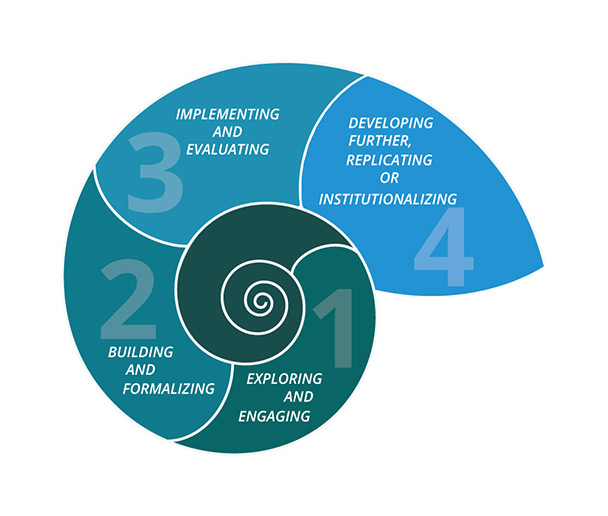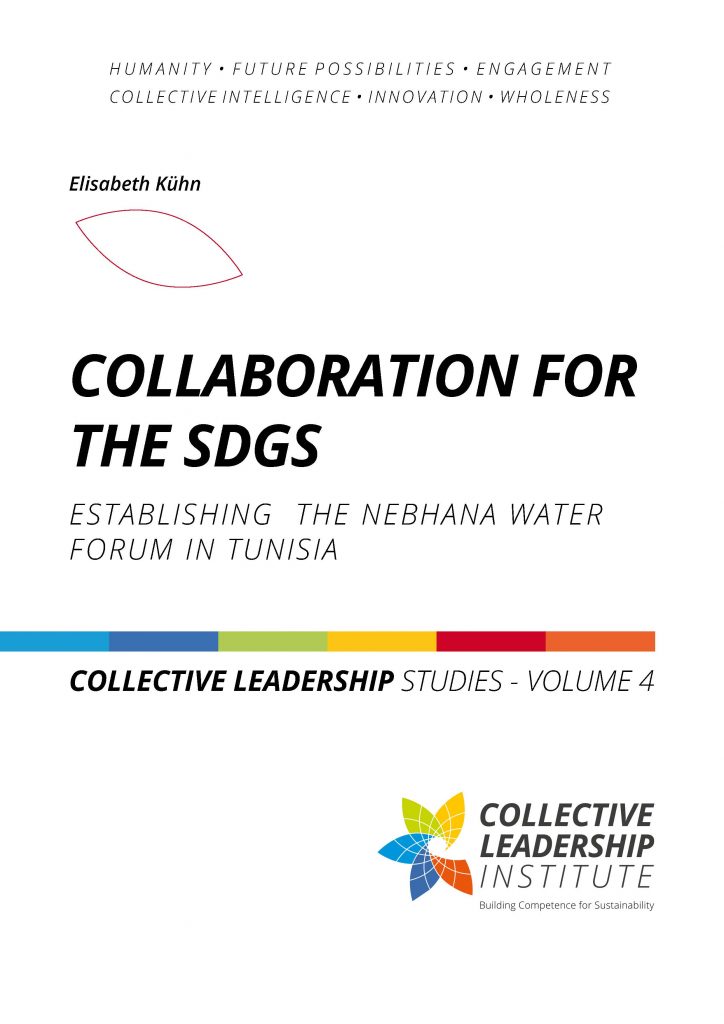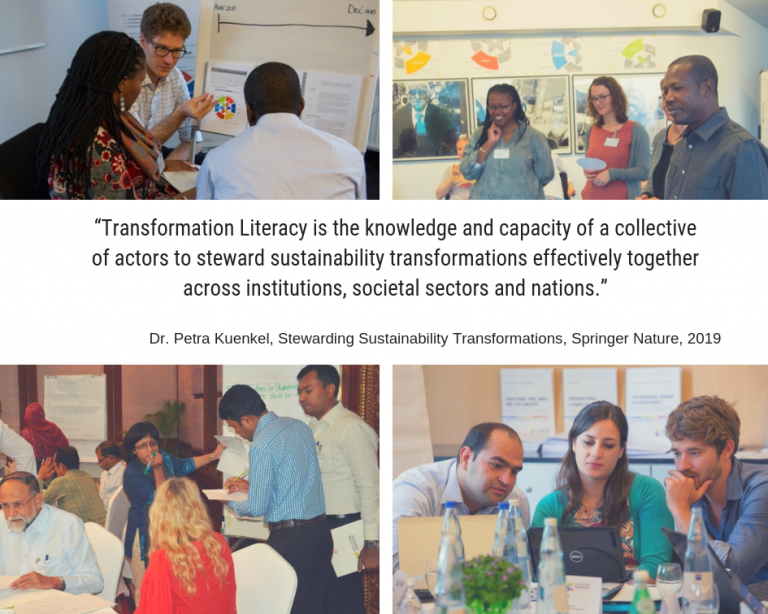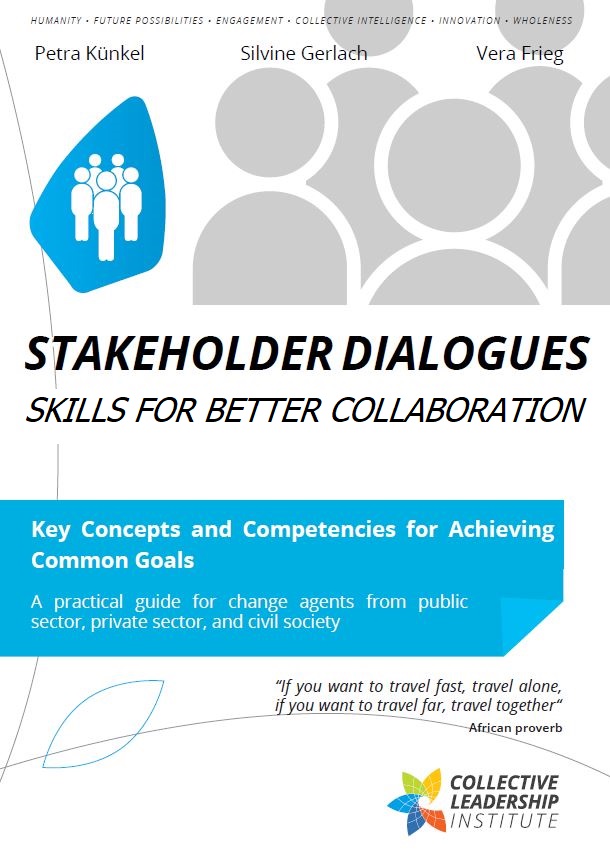I have been working with people from more than 50 countries, in governments, NGOs and corporations. No matter, where in the world, invigorating the human capacity to collaborate made the difference and let to tangible outcomes. The changes in front of humankind are fundamental. No single actor has all the solutions, but each actor may essentially contribute a parcel of knowledge, a puzzle piece that counts. Partnering and multi-stakeholder collaboration between business, NGOs, government, the UN and communities are expected to be essential to achieve sustainability and development goals, but they will be needed at a scale and quality that goes far beyond the current capacity for collaboration.
Invigorating our human competence to collaborate is the pathway into a more sustainable future
Petra Kuenkel
Our world needs collaborative inventiveness and jointly implemented change.
Petra Kuenkel
Developing cross-sector collaboration initiatives is usually slow with high transaction costs, in part because partnering across societal sectors is easy to espouse but difficult to implement. It entails bringing together organizations with different drivers, resources, time scales, values, and cultures. Finding common objectives that fulfill the objectives of all sides is not an easy task. Building trust and equity among the collaborating partners is hard work and often outside the comfort zone of the individuals involved. The Dialogic Change Model, developed on the basis of 20 years of experience in international multi-stakeholder collaboration functions as a handrail and practical guide to organizes and orchestrate collaboration that works.


The article examines successful patterns for collaboration in large-scale, multi-actor sustainability initiatives across the boundaries of private sector, public sector, and civil society.
The Journal of Corporate Citizenship No. 58,
Large Systems Change: An Emerging Field of Transformation and Transitions (June 2015), pp. 119-136.
More information here, download here.
Citation: Kuenkel, P. (2015). Navigating Change in Complex Multi-Actor Settings: A Practice Approach to Better Collaboration. The Journal of Corporate Citizenship, (58), 119-136.

Volume 4 of the Collective Leadership Studies focuses on the challenge of the Sustainable Development Goals (SDGs). The SDGs provide a demanding set of aspirations for global development and aim for nothing less than to ‘shift the world onto a sustainable and resilient path’.
Citation: Kuehn, E. (2017): Collaboration for the SDGs – Establishing the Nebhana Water Forum in Tunisia, Collective Leadership Studies Vol 4, Collective Leadership Institute: Potsdam/Germany, ISSN 2569-1171.
Download here.

One of the few books to examine the role of business in social and environmental innovation, particularly in the context of Africa. This study addresses entrepreneurship, large companies, cross-sector collaboration initiatives, and the role of academia and teachers. It frames and complements empirical contributions in a synthesis of key theories and concepts.
Citation: Kuenkel, P., Aitken, A. (2015): Key Factors for the Successful Implementation of Stakeholder Partnerships: The Case of the African Cashew Initiative, in: Bitzer, V., Hamann, R., Hall, M., Griffin-EL, E.W. (Eds.), The Business of Social and Environmental Innovation – New Frontiers in Africa. Springer.
Order here.


